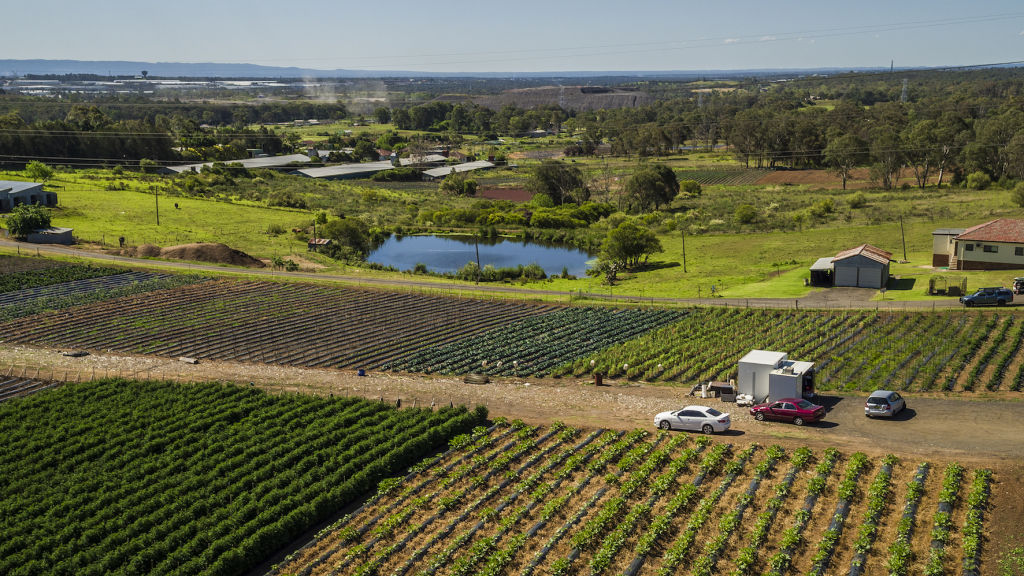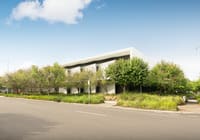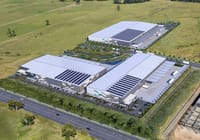
NSW government calling for a new crop of urban farmers for Western Sydney Parklands
Living in a large city, it’s difficult to fathom the prospect of the fruit and vegetables on your dinner plate having been grown just a 30-minute drive down the road.
But ever since Australia’s largest urban parkland – the 5280-hectare Western Sydney Parklands – dedicated a portion of its land to urban farming in 2011, it’s been something an increasing number of Sydneysiders have been able to experience.
“A key strategic direction of the trust’s plan of management (2020) was to establish urban farming in the Horsley Park Precinct, which sits within the central area of the Parklands and offers the best opportunity for agricultural use,” Western Sydney Parklands executive director Suellen Fitzgerald said.
Sixteen farms currently operate within a 100-hectare urban farm precinct at the Horsley Park section of the Parklands, which were established in 2006 and span the cities of Liverpool, Blacktown and Fairfield in Sydney’s west.
Produce from the farm precinct includes cucumbers, beans, broad beans, zucchini, strawberries, tomatoes, chillies, capsicum, kale and cabbage right through to fresh flowers, and is sold at markets including Sydney Markets in Flemington as well as at the farm gate.
“Growing food closer to our cities benefits the people of Western Sydney who have better access to fresh food, reducing food miles, connecting communities, retaining the agricultural heritage landscape and ensuring the freshest, best quality produce is delivered straight from the paddock to people’s plates,” Ms Fitzgerald said.
Now budding urban farmers with a vision for sustainability and a passion for the farm-to-plate movement are being encouraged to apply for the latest release of agricultural land at the Parklands.
The Western Sydney Parklands Trust has issued a call for expressions of interest for a new release of lots with the NSW government body calling for “viable” applications that demonstrate “sustainable farming practices”.
The six land parcels range from three to nine hectares and are available for “mixed agricultural uses such as open growing, orchards and glasshouses”, according to the trust.
Businesses wishing to tender don’t necessarily have to be existing farmers but the trust will be considering “the farmers’ business plan, land use, experience and sustainable practices,” Ms Fitzgerald says.
Farming still a tough life in the city
Combining city life with the thrill of working in the great outdoors might sound like the ultimate lifestyle business, but being an urban farmer isn’t necessarily an easy feat.
Meng Sun helps her mother run the urban farm Sun’s Fresh Farm, supplying food like broccoli, cauliflower and cherry tomatoes to the Western Sydney area.
“It’s not easy, it’s not like you see on TV. It looks easy but you’ve got to know what you’re doing before you start the business,” she said, advising anyone considering tendering for a plot to do their homework first.
But those who do nail the urban farming formula also have lots to gain from operating within the Parklands, not the least being the stability of a longterm lease in a part of Sydney that has increasingly been converted to residential use.
“Their leases are longer and they’re not at risk of development – they’re not landlords who need to move on and sell up. That’s a guarantee for us – the landlord can’t turn around and say they’re selling the block,” Ms Sun said.
Most leases in the precinct are for nine years, according to Ms Fitzgerald.
The Suns started by selling their produce at local markets, but as their customer base grew they were able to start selling directly to the public from the farm.
“We have a lot of regular customers in the area and on the weekend we have a lot of customers from the inner city,” she said.
“People love the fact that it’s fresh – they tell us that it lasts longer.”
Applications for farming proposals are open until 4pm October 14.










